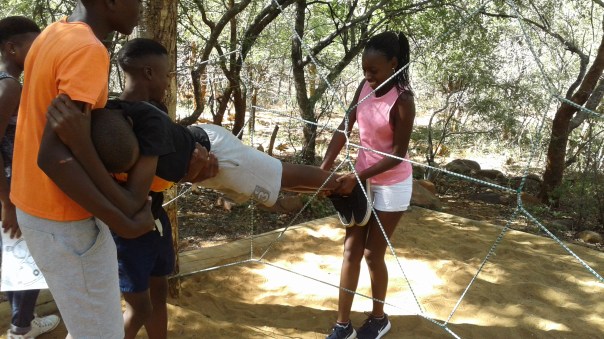
-Nurse Grace conducting a home visit in the township of Leseding-
DAILY TASKS:
During this Corvid-19 pandemic lockdown I dedicated my work in the community to educating families and school children about the Corvid 19 virus signs and symptoms as well as basic hygiene measures to ensure they understand ways of transmission and how they can prevent community infection. It was during that time that I also made home assessments and identified those families that needed support with food, clothes and proper shelter.

-Food parcel distribution to the unemployed during Lockdown-
School children were encouraged to study at home. I also helped those in Matric, through a WhatsApp group, to share ideas and questions for specific subjects. Others were encouraged to access learning through direct teaching from television and radio broadcasting programs at scheduled times. Counselling support service was provided to those facing serious issues and referrals were made when needed for further management.
CHALLENGES:
- Lack of food in many families due to no income.
- Family disputes leading to physical injury i.e. fighting and verbal abuse
- Increase in gender based violence
- Loss of jobs and insecurity
- Suicidal attempts in some learners due to emotional stress and poor family support
- Increase in alcohol & substance abuse in some learners as they are not going to school
- Increase in crime rates like house breaking, shops and schools
- Undocumented foreign nationals who have no job nor proper income

-Nurse Grace helping the homeless in Vaalwater-
SUCCESS STORIES:
Through the kind donation of funds from The Waterberg Trust, Church of St John the Baptist at 24 Rivers, individual donors and fellow Christians who donated clothes, many people were blessed with food parcels, clothing, bedding and shelter. The criteria for food donation was: vulnerable families, school children and foreign nationals who could not afford to buy food. Thorough assessments, through home visits, were completed and a list drawn of beneficiaries. Some were referred by the Social Development and Lethabo Kids Club.

-Sorting TWT food parcels before distribution-
FUTURE PLANS:
To continue reaching out to the vulnerable community and those in urgent need for support.
The next food parcel distribution will be the second week of June to avoid month-end overcrowding when people are busy getting their social grants and buying goods. During mid-month is when most families run out of food supplies. We will work with Department of Social Development who will help to distribute the food parcels. Those food parcels which are supplied by St John’s and TWT will be clearly marked and carries a personal note for the recipient.
We will continue to liaise with stake holders to avoid duplication of food distribution in the community i.e. Social Development Services staff, religious groups and other institutions which are involved in helping the community.
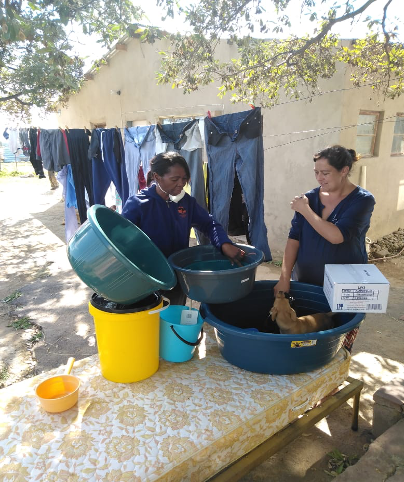
-Sorting donations of clothes and a bed-
STATISTICS:
Total number of people visited and assessed 150 during Lockdown
Food parcels – 75 (TWT funded 40 – St John’s Church and local individuals funded 35)
Clothing parcels – 30
Providing shelter – 2
Counselling – 10 (Gender Based Violence, Sexual abuse, suicide attempts & fighting)
Referrals – 13 (Application for birth & ID certificates, Social grants and food parcel application)
Treatment support – 20 learners reached and assisted to collect medication from clinic and needed adherence counselling.
The above duty commitment was made possible because of the support received from donors, fellow Christians and individuals.
May God greatly bless you for supporting our community during this challenging time.

ACKNNOWLEDGEMENT MESSAGES FROM SOME OF THE BENEFICIARIES THAT RECEIVED FOOD PARCELS:
- ‘On behalf of my family I would like to say thanks to St John’s and The Waterberg Trust, the donors and supporters. May the almighty Lord bless them, thanks –’ Emmy Banda
- ‘Thank you very much you are really God sent’ – Lisa Mofokeng
- ‘Thank you for the food parcel we appreciate your help Sister Grace’ – Dikeledi Mokoena
- ‘God knows your heart’ – Julia Ntomane
- ‘I don’t know what to say but only God will bless you more’ – Maria Nel
Report compiled by: Grace Ismail. Note: The people who appeared on the photos gave consent and agreed that their pictures can be used and shared with sponsors.
Thanks to kind donors in the UK, The Waterberg Trust has been able to send enough funds for a second allocation of food parcels but we winter has set in and we don’t know how long the emergency will last. Schools have gone back but tourism, which is the main source of employment in the district, remains shut down.
To see more photos of the food parcel distribution, please click here.
If you would like to make a donation to TWT’s Covid-19 Appeal, please click here for TWT’s Just giving page (please leave a brief message) or here for the address to which cheques can be sent.
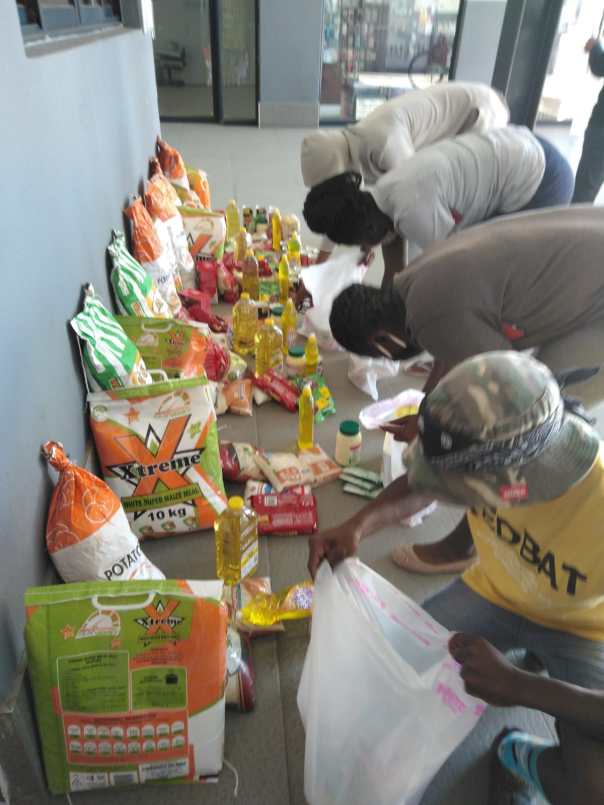













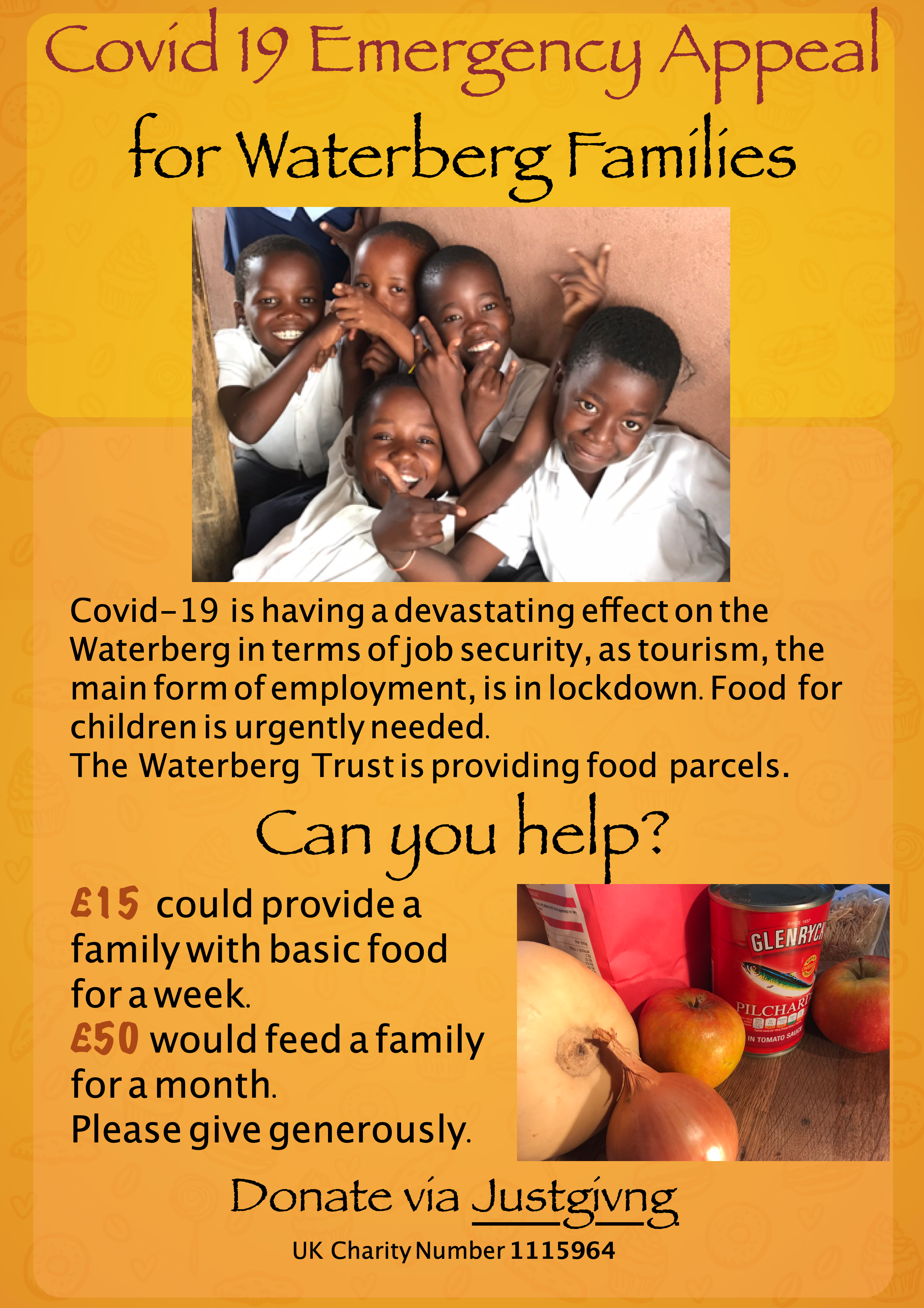

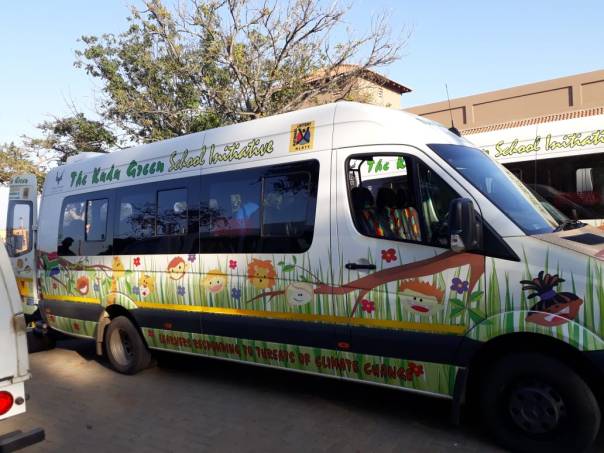
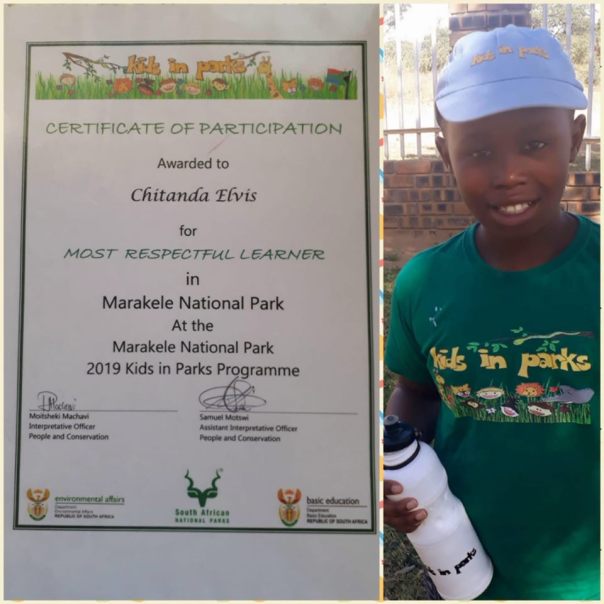
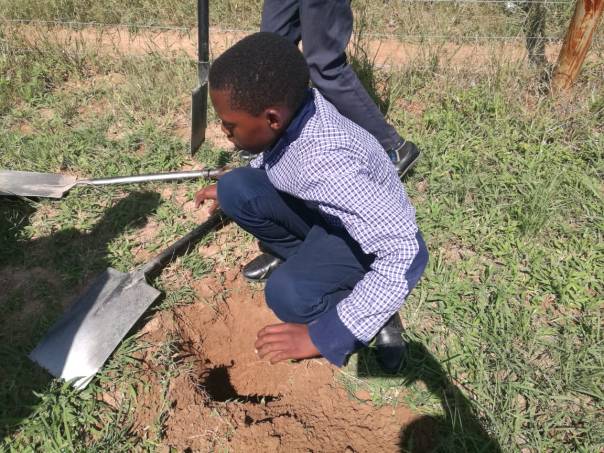
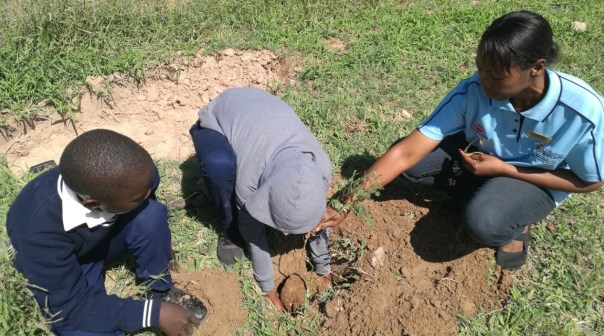



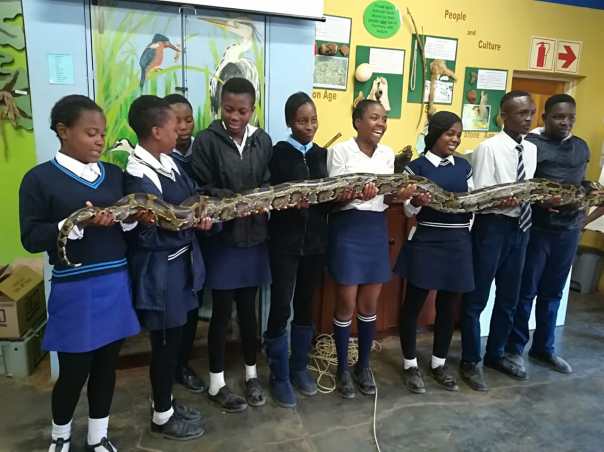
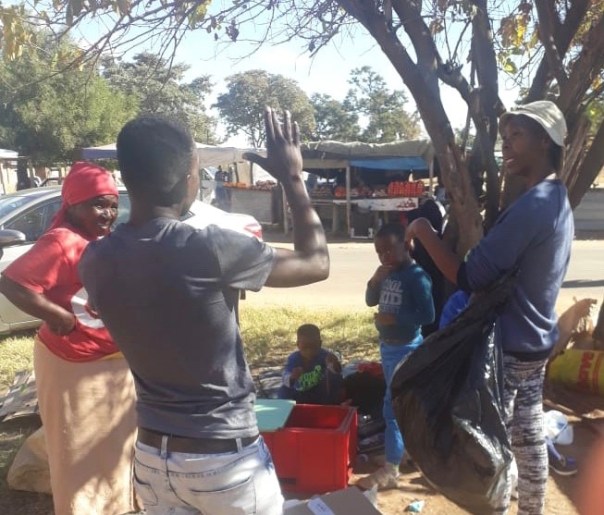











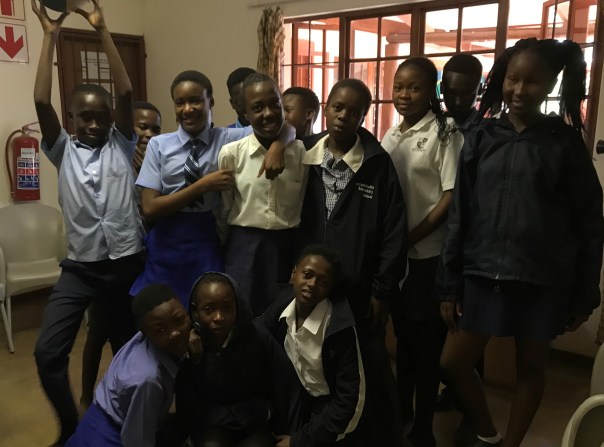

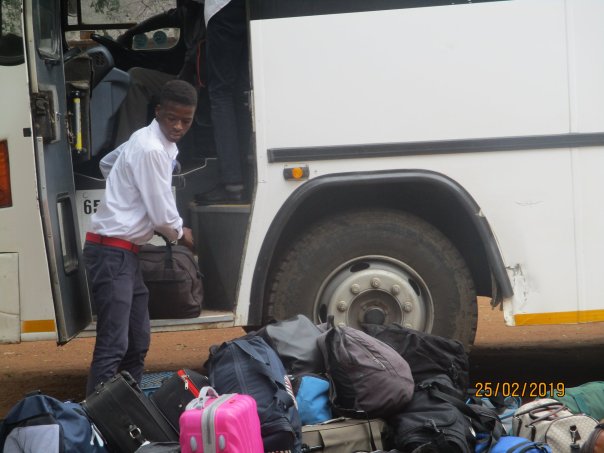

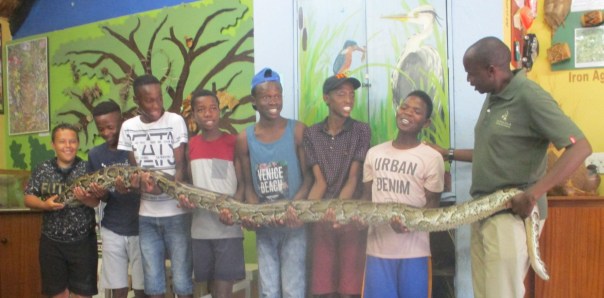 After a course on snakes and the value of all creatures in balanced eco-systems there was a module on plastic pollution and re-cycling. Everyone learned how they can make a difference and improve the environment, allowing wildlife to thrive.
After a course on snakes and the value of all creatures in balanced eco-systems there was a module on plastic pollution and re-cycling. Everyone learned how they can make a difference and improve the environment, allowing wildlife to thrive.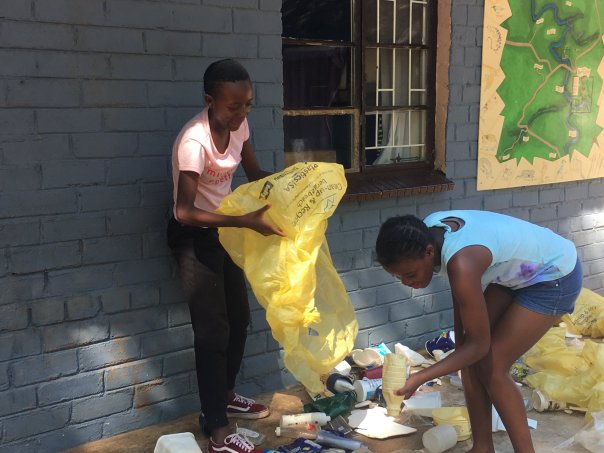 Students donned life-jackets to examine aquatic organisms and try swimming in the Palala River, which runs in front of the eco-school.
Students donned life-jackets to examine aquatic organisms and try swimming in the Palala River, which runs in front of the eco-school.
 Teamwork proved essential when constructing a raft and negotiating the river.
Teamwork proved essential when constructing a raft and negotiating the river.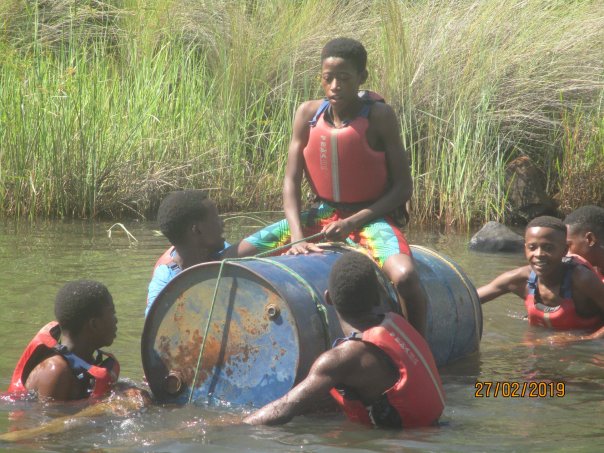
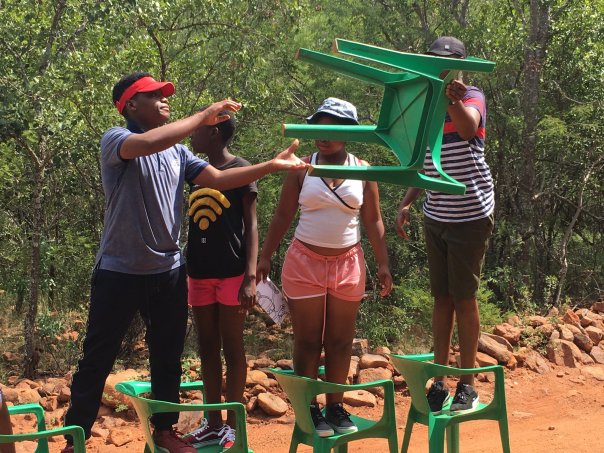 Learners were set a number of different challenges during the course of the week.
Learners were set a number of different challenges during the course of the week.

 including the teachers accompanying the teenagers who found themselves wearing many hats.
including the teachers accompanying the teenagers who found themselves wearing many hats.
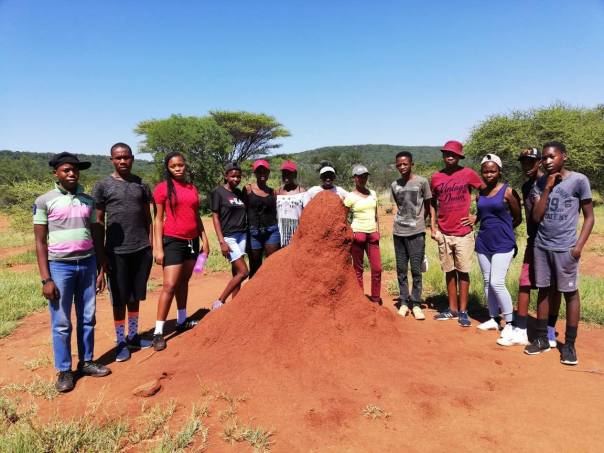






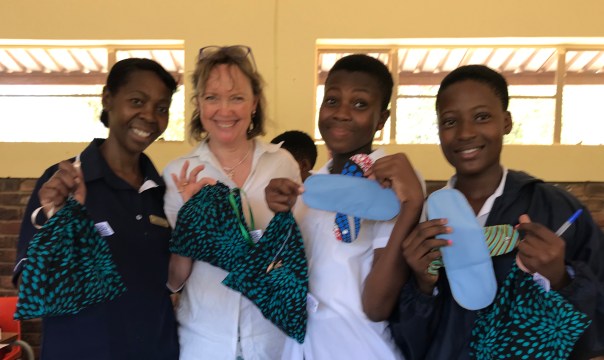
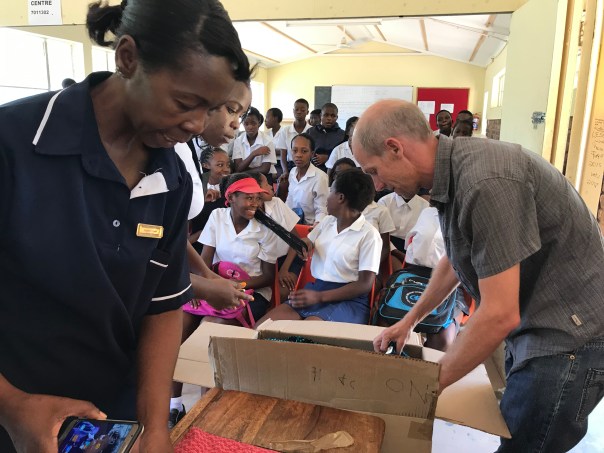


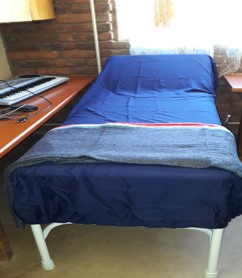 ~Examination couch with linen covers~
~Examination couch with linen covers~ ~Grade 8 pupil with chronic illness under diet supervision~
~Grade 8 pupil with chronic illness under diet supervision~ ~Girls who received donated sanitary pads~
~Girls who received donated sanitary pads~ ~Learners participating during class health talk~
~Learners participating during class health talk~ ~Transformed learner witnessing to students~
~Transformed learner witnessing to students~
 ~Donation of clothes to the needy children in the community~
~Donation of clothes to the needy children in the community~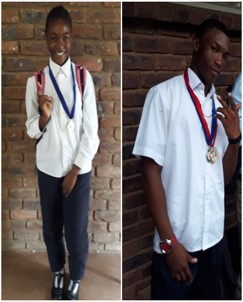 ~Two who excelled in athletics~
~Two who excelled in athletics~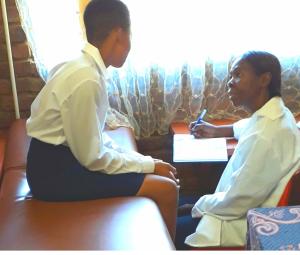



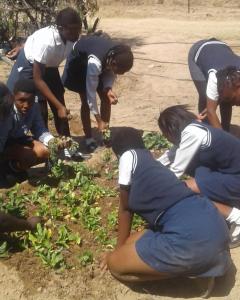

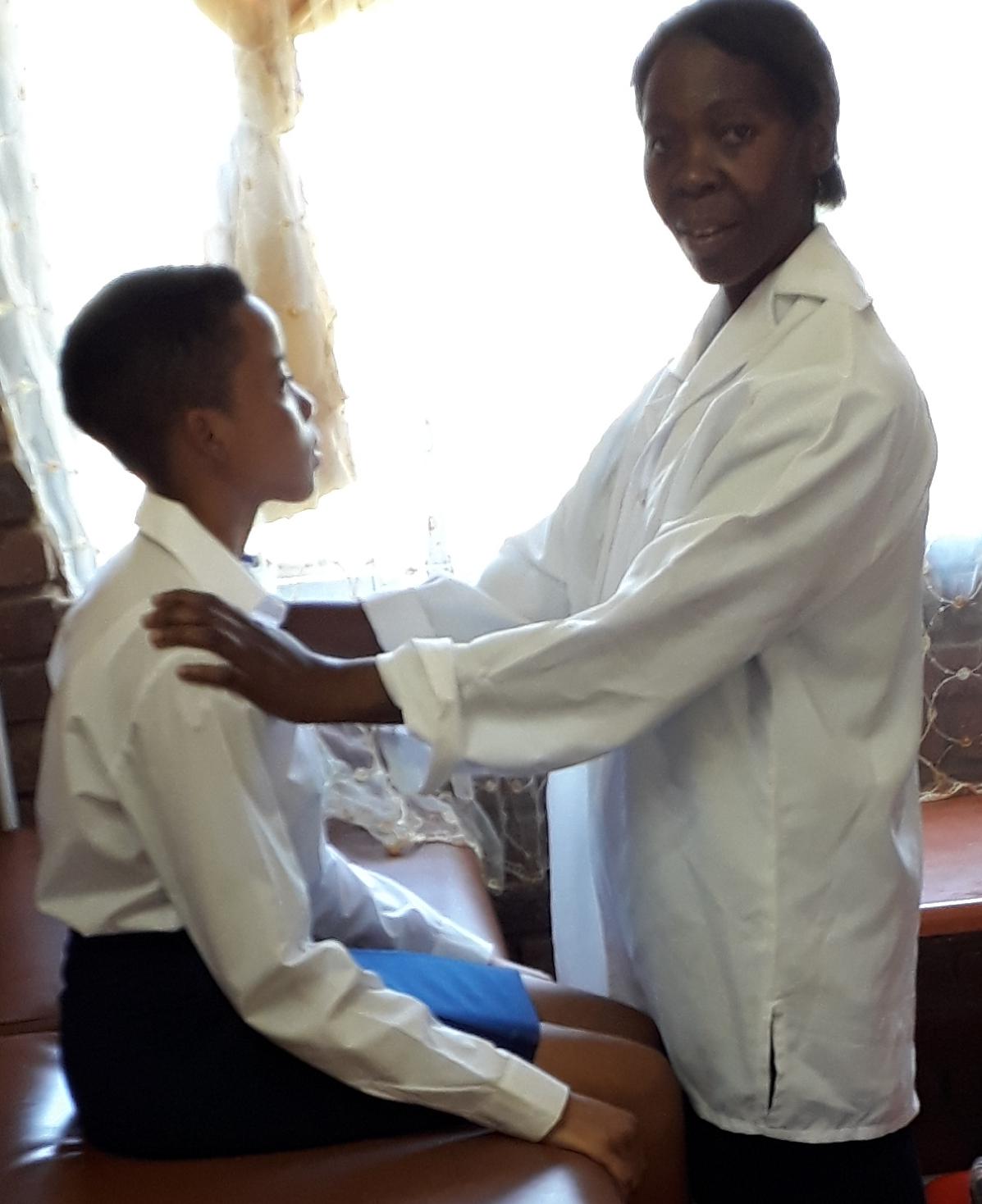 -Sister Grace at work in schools in the Waterberg, Limpopo Province, South Africa-
-Sister Grace at work in schools in the Waterberg, Limpopo Province, South Africa-








